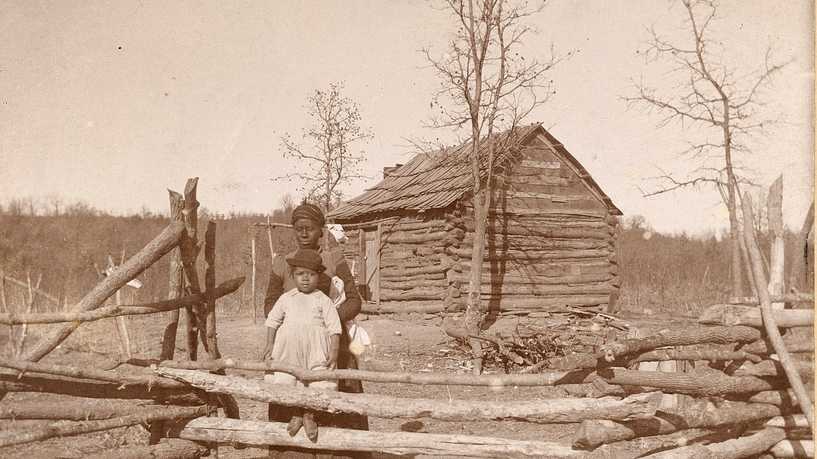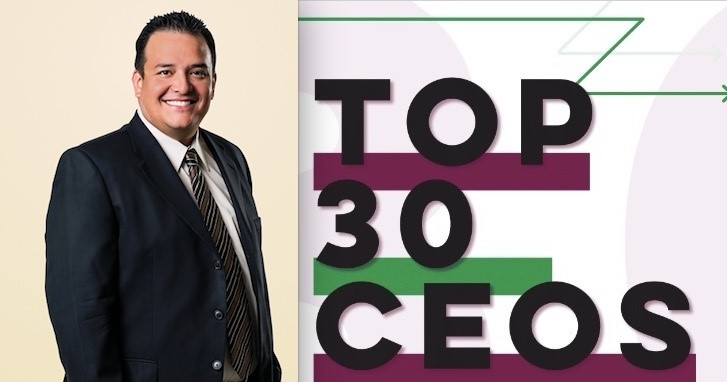
By Cecily Hilleary
Eli Grayson, a citizen of the Muscogee Creek Nation in Oklahoma, says chances are turnout will be as low for the upcoming poll as it was for the last tribal general election in 2015, when fewer than 5,000 Creek citizens voted, out of a total tribal population of nearly 90,000.
“Most of these folks don’t go [to] vote because they see it’s the same thing, the same people running against each other every few years,” said Grayson. “Different names on the T-shirts, same hot mess inside.”
The problem, he explains, is the Creek constitution mandates that only full Creek citizens—those with one-quarter Muscogee Creek blood or more—may hold political office.
“More than 85 percent of the tribe has less than one-quarter blood,” said Grayson. And that means power is concentrated into a small group of elites. Grayson thinks it’s time to lift that restriction, and he has begun circulating a petition calling on the government to do just that.

Understanding blood quantum
Historically, tribes determined their own membership, although that changed in the 1880s as the U.S. government strove to accommodate large numbers of white settlers rushing into Oklahoma, then called Indian Territory.
In 1887, Congress passed the Dawes Act, dividing large reservations into 65-hectare parcels that were allotted to individual tribe members to farm. All surplus reservation land would be opened up to settlers.
Congress created the Dawes Commission to focus specifically on the Cherokee, Choctaw, Chickasaw, Creek, and Seminole tribes and determine who were legitimate tribe members and eligible for allotments.
Applicants were required to document their Indian lineage. Government agents entered their names, ages, genders, and degree of Indian blood, or blood quantum, onto lists today called the Dawes Rolls.

Today, most federally recognized tribes rely on the rolls to determine eligibility for citizenship. But this is problematic, with intermarriage becoming more common and blood quantum diminishing with each passing generation.
According to a chart provided by the Muscogee Creek Nation citizenship office, only about 2 percent of the tribal population are “full-blooded,” and the majority is ineligible to hold office.
Monte Randall, dean of academic affairs at the College of the Muscogee Nation, is among the 10 candidates vying for the office of principal chief. Describing himself as “technically full-blood,” he said he supports the law as it stands.
“I believe there is a correlation between higher blood quantum and participation in traditional cultural practices,” he said. “I feel like it’s in our best interest as a nation to keep those eligibility requirements on who can become an elected official intact. We identify who we are by our culture and our language, so to be able to maintain that within our top leadership is imperative for us.”

Randall acknowledges that with each generation, the pool of qualified political candidates diminishes.
“Let’s rejuvenate our culture,” he suggested. “Let’s make it so that more than three-quarters of the tribe know the language, and then this won’t be an issue.”
Fellow candidate for principal chief, Creek attorney Brenda Golden, also wants to safeguard Creek culture, but if elected, promises she will work to lift the blood quantum requirement.
“I’ve heard—and I’m not trying to be offensive—some say we’re not ready for other people to take over our government. And by that, I mean people who are not going to have the features or the skin tone that someone with a higher blood quantum has,” she said.
Freedmen
It is a subject few Creek citizens like talking about, says Grayson, who is Creek by blood but also descended from the Freedmen, slaves the Creek took with them when the tribe was forced out of the South in the 1830s.
By 1860, the Creek Nation alone had more than 1,600 slaves. Six years later, the tribe negotiated a treaty with the U.S. government, which gave the Freedmen full citizenship, voting rights, and land allotments amounting to more than 480,000 hectares.

In 1979, the Creek Nation reorganized and drafted a new constitution that in essence rescinded that citizenship.
“At that point, the Freedman made up more than a third of the tribe,” said Grayson. “And if you add the descendants of those mixed-bloods who were listed on the Dawes roll, then Black Indians would be in the majority.”
And this is why, Grayson asserts, the tribe limited who could run for office.
“The ones in power said they didn’t want to be perceived as a black tribe,” he said.

People’s choice
The Creek constitution gives citizens the right to propose or reject laws.
“The Creek have a right to create a petition, and if they can get 20 percent of those who voted in the last general election to sign it, then the principal chief has to call a constitutional referendum within 90 days and put the question to the people.”
Grayson said he has collected more than enough signatures, including that of a former chief.
“This petition may not make a difference in this upcoming election,” he added, “but it will sure help the next one.”










